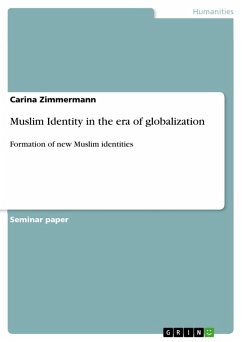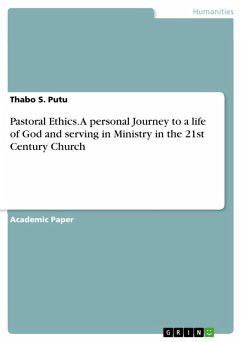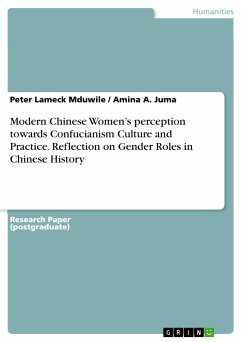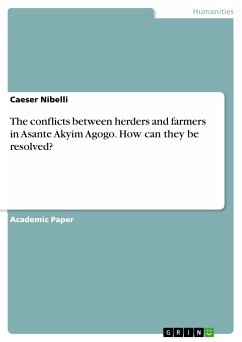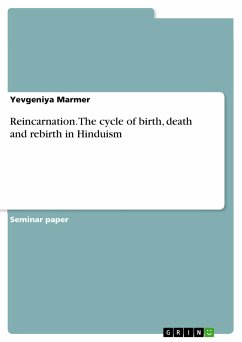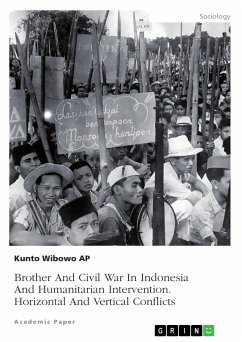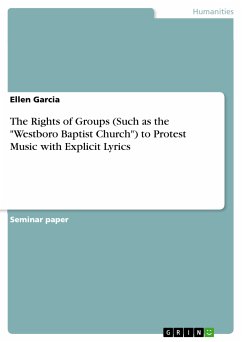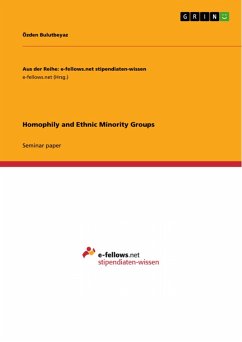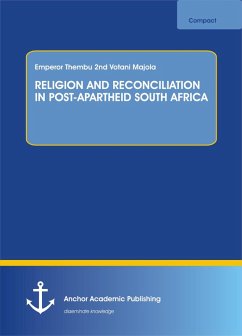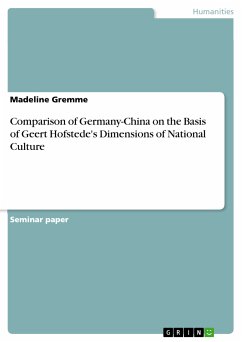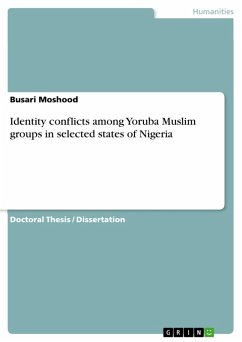
Identity conflicts among Yoruba Muslim groups in selected states of Nigeria (eBook, PDF)

PAYBACK Punkte
0 °P sammeln!
Doctoral Thesis / Dissertation from the year 2017 in the subject Sociology - Religion, , course: Arabic and Islamic Studies, language: English, abstract: The Yoruba Muslims' notion of the self and the other had, since 1960s, had profound impacts on their socio-religious lives and engendered intra-faith conflicts and controversies. Existing studies on identity and conflict have concentrated on inter-religious conflicts in the northern Nigeria while intra-faith conflicts and disagreements among Muslims in the Southwestern Nigeria have been neglected. This study, therefore, examined conflicts whi...
Doctoral Thesis / Dissertation from the year 2017 in the subject Sociology - Religion, , course: Arabic and Islamic Studies, language: English, abstract: The Yoruba Muslims' notion of the self and the other had, since 1960s, had profound impacts on their socio-religious lives and engendered intra-faith conflicts and controversies. Existing studies on identity and conflict have concentrated on inter-religious conflicts in the northern Nigeria while intra-faith conflicts and disagreements among Muslims in the Southwestern Nigeria have been neglected. This study, therefore, examined conflicts which centred on religious identifiers such as cap, hijab, turban, rosary, beard and short trousers among Yoruba Muslims in Nigeria, with a view to authenticating their position in Islam. The study employed al-Alwani's construct of conflict which allows expression of divergent opinions to ensure dynamism in al-Furu'(branches of Islam), without resulting to crisis. Two thousand four hundred and seventy questionnaires were administered. Respondents (aged 20-60) from Oyo (410), Osun (400), Lagos (350), Ogun (300), Ondo (320), Ekiti (310) and Kwara (380) were randomly sampled. Purposive sampling technique was also adopted in selecting fifty-six Islamic preachers comprising seven from each of Muslim Students' Society of Nigeria (MSSN), Tabligh, Ta'awun, Izalah, Tijaniyyah, Qadiriyyah, The Muslim Congress (TMC) and Zumrah , across the seven states, for interviews on religious identifiers. The Qur'an and the Sunnah were consulted and data were subjected to both qualitative and quantitative analyses. It was found that identity conflicts among Yoruba Muslim groups largely focused on al-Furü not al-Usul (fundamentals).
Dieser Download kann aus rechtlichen Gründen nur mit Rechnungsadresse in A, B, BG, CY, CZ, D, DK, EW, E, FIN, F, GR, HR, H, IRL, I, LT, L, LR, M, NL, PL, P, R, S, SLO, SK ausgeliefert werden.




